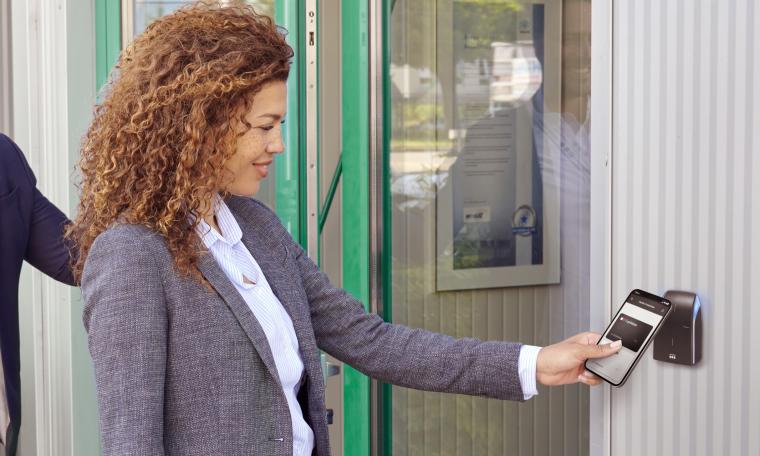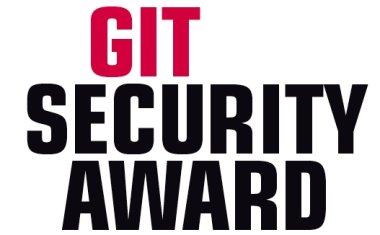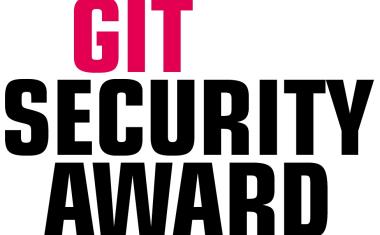Optimized Access Control Through Mobile Access
Companies are constantly searching for innovative solutions that will meet their security requirements, in particular in times when technological progress offers new capabilities every day. One of these groundbreaking developments is mobile access – a revolution in access control and perimeter security that is quickly gaining interest. The following article from Primion demonstrates the potential of mobile access and its relevance for companies and institutions that need to optimize their access control.

Mobile access uses smartphones as digital keys. Instead of using traditional physical keys or chip cards, staff and visitors simply use their smartphone to be granted access to buildings. This method has already been implemented in many installations because of its many advantages.
Advantages of Mobile Access Control
- User friendly: Using a smartphone, that most people carry with them anyway, for access is as simple as unlocking the screen. Carrying heavy keyrings or losing chip cards belongs to the past.
- Flexibility: Access rights can be granted or withdrawn at any time and from anywhere. This is ideal for external employees and temporary visitors – no more stress with handing over keys.
- Security and transparency: Mobile access provides an exact record and overview of who has access and when. Adding advanced security functions, such as fingerprint scans or face recognition, provides another layer of authentication.
- Cost saving: There is no longer any necessity for physical keys or ID cards. That not only saves the cost of creating them but also the administration and replacement cost when they go missing.
The Technology Behind Mobile Access
Bluetooth low energy, near field communication and cloud-based access are the technologies that make mobile access possible. Bluetooth low energy (BLE) it a wireless communications protocol that was specially developed for devices with a low power consumption. Thanks to BLE, users can open doors up to ten meters away without having to hold their token (chip, keycard) directly on the reader. The battery of the smartphone is used very little for this – and it is secure: encrypted data transmission and additional security levels provide additional protection.
Near field communication (NFC) uses radio waves that have a short range to exchange data between devices that are only a few centimeters from each other. The advantages here are the speed – NFC authentication happens quickly and intuitively – and the security – the contact required between the devices reduces the risk of unauthorized access.
Finally, cloud-based access enables the central administration of access rights. On the one hand, this means centralization: access rights can be administered for many sites, which is ideal for companies with many locations. Cloud systems can also be integrated into other software, such as staff assignment planning and IoT devices. In addition, there is the ability to carry out updates in real time: access rights can be changed immediately.
Usage Scenarios
Mobile access makes good sense in an office environment, for example: flexibility has high priority in today’s offices. Employees can easily make use of various areas, such as meeting rooms or co-working spaces. Access rights can be remotely administered, which is ideal for companies with multiple branch offices or home office options.
Mobile access can even be very helpful in hospital environments: quick access to critical departments, such as the intensive care ward or the operation rooms, is essential. Mobile access ensures that the medical personnel can act immediately, without having to look for keys. It also provides administration for sensitive areas through multi-factor authentication. Training establishments serve as a third example: students and lecturers have convenient access to lecture halls, libraries and living areas using their mobile device. This is very convenient and removes the need to keep track of physical keys. Universities can also make better use of common rooms, and improve the security through having detailed access records.
The Future Is Now
The development of mobile access control is just part of a comprehensive digital sea change in security and access administration. The integration of IOT devices and AI-controlled analysis will increase the level of security and convenience even further. Digital identification is also environmentally friendly because they make plastic cards unnecessary. Mobile access is not just a passing fad but a fundamental change that is revolutionizing security management. Companies and institutes that choose to adopt mobile access are well equipped for the future. The key to secure and flexible access control is literally in their hands.













